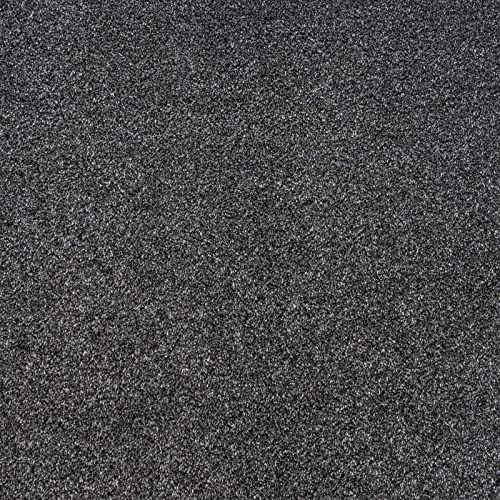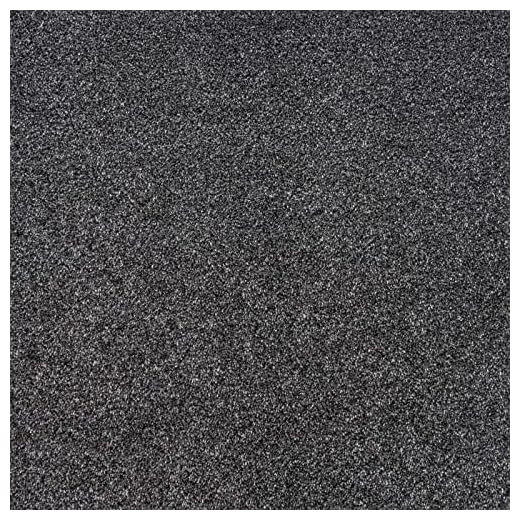




Observing peculiar actions can lead to some amusing moments. One such behaviour involves a four-legged friend scooting across the floor, leaving a trail of confusion behind. This might stem from discomfort or an itch, often linked to hygiene issues like an overgrown anal gland or irritation.
Veterinary experts suggest paying close attention to your companion’s grooming habits. If this action becomes frequent, it’s wise to consult a professional. A quick check can ensure there are no underlying health concerns, possibly related to skin allergies or parasites.
In addition to health issues, boredom may also drive such antics. Engaging your furry mate with regular exercise and stimulating activities can redirect this behaviour into more constructive outlets. Interactive toys or training sessions can keep them occupied and satisfied.
Maintaining a clean and comfortable environment plays a role too. Regular grooming helps prevent discomfort that might lead to such behaviours. A balanced diet can also contribute to overall wellbeing, reducing the likelihood of gastrointestinal discomfort that may prompt these actions.
Understanding the Behaviour
To address this quirky habit, it’s essential to consider the reasons behind it. One common cause is discomfort caused by anal glands. These glands may become full or impacted, leading to irritation. In such cases, your furry friend might seek relief by rubbing against various surfaces.
Health Indicators
If you notice this action frequently, it might be wise to consult a veterinarian. Regularly checking for signs of infection or skin issues can ensure your pet’s well-being. Look for any swelling, redness, or unusual discharge, as these could indicate health concerns that need attention.
Behavioural Aspects
Another angle to consider is the social aspect of this behaviour. Canines often communicate through scent, and by rubbing against certain areas, they may be marking their territory or trying to spread their scent. This instinctive act can be attributed to their ancestry, where scent marking played a crucial role in pack dynamics.
| Reason | Description |
|---|---|
| Anal Gland Issues | Discomfort caused by full or impacted glands. |
| Skin Irritation | Allergies or infections leading to itching. |
| Territorial Marking | Instinctive behaviour to communicate scent. |
Paying attention to your pet’s habits can provide insights into their health and emotional state. Addressing these concerns promptly will ensure a happy and healthy companion.
Understanding Canine Hygiene Habits
Regular grooming is a key practice that can assist in maintaining cleanliness. This can include:
- Brushing fur to remove debris and loose hair.
- Bathing with appropriate shampoos to keep skin and coat healthy.
- Trimming nails to prevent discomfort and avoid scratching surfaces.
- Cleaning ears to prevent infections and ensure overall ear health.
Observing dietary habits plays a role in hygiene. A balanced diet can lead to healthier bowel movements, reducing discomfort and the need for excessive cleaning behaviours. Some points to consider:
- Choose high-quality food that suits the pet’s age and breed.
- Avoid table scraps or unhealthy treats that may upset digestion.
- Ensure fresh water is always available to promote hydration.
Regular vet check-ups are vital. These appointments can help identify potential issues that may affect hygiene, such as:
- Skin conditions that cause irritation.
- Parasites that may lead to discomfort.
- Digestive problems that could result in unusual behaviours.
Lastly, training can improve behaviour related to cleanliness. Teaching commands such as “leave it” or “go outside” can redirect actions that might lead to undesirable habits. Consistent reinforcement and positive encouragement will aid in establishing better routines.
Common medical issues behind the behaviour
Consult a veterinarian if you notice unusual actions, as underlying health problems could be at play. For instance, anal gland issues often lead to discomfort, causing a pet to seek relief by dragging. Regular check-ups can help avoid such complications.
Parasites, like worms, may also trigger this behaviour. These invaders irritate the digestive tract, prompting a search for relief. A suitable diet, such as the best dog food for dachshund puppy philippines, can support overall health and reduce irritation.
Skin problems, such as allergies or infections, can create itching and discomfort, leading a furry friend to rub against surfaces. Keeping up with grooming and ensuring a clean environment is key to preventing these issues.
Always observe for signs of distress. If a pet shows changes in behaviour, it might indicate a more significant health concern. Consult with a vet to ensure proper diagnosis and treatment. Remember, a well-balanced diet and appropriate care can often prevent many of these medical issues, allowing for a happier and healthier life.
Finally, ensure a proper cooking routine for any homemade meals. For example, learning how to cook chicken breast in skillet on stove can provide a nutritious option that supports overall wellness.
How to correct this behaviour in canines
First and foremost, ensure regular grooming. Frequent baths and proper hygiene can significantly reduce discomfort that may lead to this behaviour. Invest in high-quality shampoos and wipes specifically designed for pets.
Next, assess your companion’s diet. A balanced, high-fibre intake can promote better bowel movements, reducing residue that might cause irritation. Consult your vet for dietary recommendations tailored to your furry friend.
Establish a consistent bathroom routine. Regular walks and outdoor breaks at specific intervals can help your pet understand when and where to relieve themselves. This structure often diminishes the need for indoor antics.
Introduce training techniques. Positive reinforcement works wonders. Reward your companion with treats or praise when they use designated areas appropriately. This encourages good habits over time.
If you notice that scrubbing is a habit linked to stress or anxiety, consider environmental factors. Create a calm space for resting, free from loud noises or disturbances. You might also explore calming products, such as pheromone diffusers or anxiety wraps.
For persistent issues, a consultation with a veterinarian is crucial. They can identify underlying health problems that may provoke such behaviour, ensuring your companion stays healthy and happy.
Finally, patience is key. Changing established behaviours takes time. Stay consistent with your approaches, and celebrate small victories along the way.
Choosing the Right Carpet to Minimise Damage
Selecting suitable flooring can significantly reduce the impact of unwanted behaviours. Consider the following tips:
- Material: Opt for synthetic fibres like nylon or polyester, which resist stains and are easier to clean compared to natural fibres.
- Texture: Short-pile carpets are preferable. They offer fewer hiding spots for debris and are less likely to trap unpleasant odours.
- Colour: Choose darker shades or patterns that can help conceal stains. This way, any accidents may not be immediately visible.
- Waterproof backing: Look for carpets with a waterproof layer. This feature helps prevent moisture from seeping through, making clean-up simpler.
- Regular maintenance: Select options that are compatible with regular cleaning. Stain-resistant treatments can provide an extra layer of protection.
Incorporating rugs or mats in specific areas can also create designated spaces for your pet, helping to protect the main flooring. Remember to take into account the overall aesthetics of your home while ensuring practicality. Balancing style with functionality can yield a more harmonious living environment.
When to Consult a Veterinarian About This Behaviour
If you notice persistent rubbing against surfaces, it’s time to seek professional advice. Consult a vet if this action occurs frequently and is accompanied by other symptoms such as excessive licking, swelling, or redness in the anal region. These signs may indicate underlying health issues that need attention.
Monitor your pet for changes in bowel habits, including constipation or diarrhoea. If your companion appears to be in discomfort or is straining while trying to relieve itself, it’s crucial to get a veterinary evaluation. Infections, parasites, or anal gland problems can cause significant distress and require timely intervention.
Behavioural changes, such as increased anxiety or irritability, also warrant a check-up. These shifts may be linked to physical discomfort or stressors in the environment. A veterinarian can help identify the root cause and provide appropriate solutions.
Always prioritise your furry friend’s health. When in doubt about any unusual behaviours, a veterinary consultation is the best course of action to ensure your companion remains happy and healthy.
FAQ:
Why do dogs wipe their bum on the carpet?
Dogs often wipe their bums on the carpet for a few reasons. One common explanation is that they may feel discomfort after a bowel movement. This can be due to residual faeces stuck to their fur, which they are trying to remove. Additionally, some dogs may engage in this behaviour as a way of marking their territory, as they have scent glands in their anal area. Lastly, it could simply be a behavioural habit that they have developed over time, especially if they found it to be rewarding in some way, like receiving attention from their owners.
Is it a sign of a health issue if my dog wipes its bum on the carpet?
While not all instances of bum wiping indicate a health problem, it can sometimes be a sign of discomfort or an underlying issue. For example, dogs may wipe their bums if they have anal gland problems, such as impaction or infection. Other potential health issues could include gastrointestinal problems or allergies. If this behaviour is new or accompanied by other symptoms like excessive licking, straining, or changes in appetite, it would be wise to consult a veterinarian for a thorough examination.
What can I do to stop my dog from wiping its bum on the carpet?
To discourage your dog from wiping its bum on the carpet, you can take a few steps. First, ensure that your dog is clean and free of faeces after going to the toilet. Regular grooming and cleaning of the anal area can help. If the behaviour persists, consider providing alternative surfaces for your dog to scratch or wipe on, like a designated mat. Positive reinforcement training can also be effective—reward your dog for using appropriate behaviours instead. If the issue continues, consult a vet to rule out any medical concerns.
Do certain breeds of dogs wipe their bums on the carpet more than others?
There isn’t a definitive answer regarding whether certain breeds wipe their bums on the carpet more than others, as this behaviour can vary widely among individual dogs. However, some breeds with longer fur or those that are prone to anal gland issues, like Bulldogs or Cocker Spaniels, may be more likely to engage in this behaviour. It’s important to monitor your dog’s habits and maintain their hygiene, regardless of breed, to prevent any discomfort that might lead to such actions.
How can I clean my carpet after my dog wipes its bum on it?
Cleaning your carpet after your dog has wiped its bum on it involves a few steps. First, immediately blot the area with paper towels to absorb any moisture. Then, use a mixture of warm water and a mild detergent to gently clean the spot. You can also use a pet-safe enzyme cleaner, as these are effective in breaking down organic materials and odours. After cleaning, rinse the area with water and blot again. Allow the carpet to dry completely, and consider using an odour neutraliser to ensure the area smells fresh.
Why do dogs wipe their bum on the carpet?
Dogs often wipe their bums on the carpet due to a variety of reasons, primarily linked to their instinctual behaviours and physical comfort. One common reason is that they might feel an irritation or discomfort after toileting. If a dog does not clean itself properly, it may try to find a surface, like carpet, to alleviate that feeling. Additionally, some dogs might engage in this behaviour as a way to mark their territory, as they have scent glands in that area. It’s also possible that a dog is simply playing or displaying a form of behaviour that feels good to them. If this behaviour becomes frequent, it might be wise to consult a veterinarian to rule out any health issues such as anal gland problems or skin irritations.








